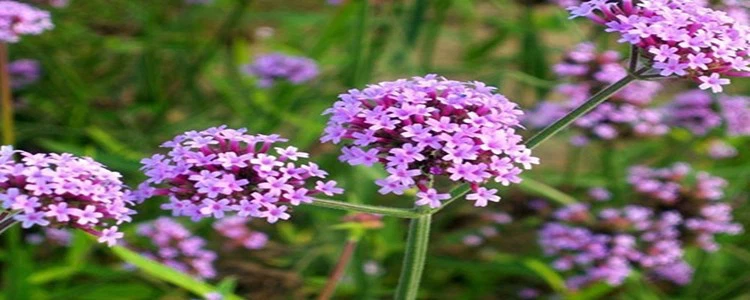Verbena is a type of plant that is commonly used for medicinal and culinary purposes. It is native to Europe and parts of Asia but has now been spread across many parts of the world. It is a member of the Verbenaceae family, which includes other well-known plants such as lemon verbena, lantana, and eucalyptus.
In this article, we will explore the different uses of verbena and its benefits for health and wellness. We will also discuss its history, the different types of verbena, and how to use it in cooking and other applications.

History of Verbena
Verbena has been used for thousands of years for its healing properties. In ancient times, it was used by the Egyptians to treat a wide range of ailments, including fever, digestive disorders, and skin diseases.
The Greeks and Romans also used verbena in their medicine, and it was considered a sacred plant. They believed that it had the power to promote healing and protect against evil spirits.
In Europe, verbena was used during the Middle Ages to treat a variety of ailments, including headaches, fevers, and digestive problems. It was also commonly used to treat wounds and infections.
Today, verbena is still widely used in herbal medicine as well as in cooking and cosmetics.
Types of Verbena
There are over 250 species of verbena, but the most common types are
1. Aloysia citrodora (lemon verbena) - This type of verbena is known for its strong lemon scent and is often used in teas, desserts, and perfumes.
2. Verbena officinalis (common verbena) - This is the most commonly used type of verbena in herbal medicine. It has a bitter taste and is used to treat a wide range of ailments, including anxiety, insomnia, and digestive problems.
3. Verbena hastata (blue vervain) - This type of verbena is native to North America and is commonly used to treat respiratory problems, headaches, and fever.
4. Verbena bonariensis (purpletop vervain) - This type of verbena is known for its tall, spiky purple flowers and is often used as an ornamental plant in gardens.
Benefits of Verbena
1. Promotes relaxation and reduces anxiety - Verbena has a calming effect on the nervous system and can help reduce anxiety and promote relaxation. It is commonly used in aromatherapy to induce a sense of calm and relaxation.
2. Improves digestion - Verbena has digestive properties that can help improve digestion and relieve digestive problems such as bloating, gas, and nausea.
3. Boosts immunity - Verbena has antibacterial and antiviral properties that can help boost the immune system and protect against infections and illnesses.
4. Relieves pain and inflammation - Verbena has anti-inflammatory properties that can help relieve pain and inflammation. It is commonly used to treat arthritis, headaches, and menstrual cramps.
5. Improves sleep - Verbena can help improve sleep quality by promoting relaxation and reducing anxiety. It is commonly used in teas and herbal remedies for insomnia.
Uses of Verbena
1. Herbal medicine - Verbena is commonly used in herbal medicine to treat a wide range of ailments, including anxiety, insomnia, digestive problems, and respiratory problems.
2. Cooking - Verbena is often used in cooking to add flavor to dishes. It is commonly used in teas, desserts, and sauces.
3. Aromatherapy - Verbena is commonly used in aromatherapy to promote relaxation and reduce anxiety. It is often used in diffusers, candles, and room sprays.
4. Cosmetics - Verbena is commonly used in cosmetics to add fragrance to products such as perfumes, lotions, and soaps.
Conclusion
Verbena is a versatile plant that has been used for thousands of years for its medicinal and culinary properties. It has a wide range of benefits, including promoting relaxation, improving digestion, boosting immunity, and relieving pain and inflammation.
There are many ways to use verbena, including in herbal medicine, cooking, aromatherapy, and cosmetics. Whether you are using it to improve your health or add flavor to your favorite dishes, verbena is a valuable plant to have on hand.
Please contact us at selina@ciybio.com.cn



